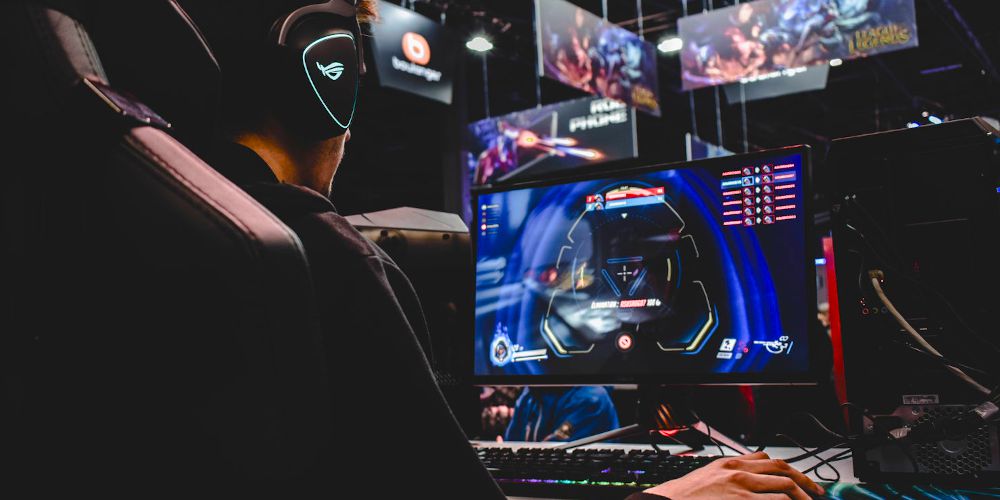In 2019, The International had a prize pool of over $34 million, making it the most profitable esports tournament for players in the history of pro gaming.
In fact, The International has been the tournament to beat since 2014, back when its prize pool was just shy of $11 million.
By comparison, the 2018 LoL World Championship offered a prize pool of $6.5 million while the 2019 Fortnite World Cup Finals (Solo) had a prize pool of $15 million.
Furthermore, ESPN doubled down on their esports coverage back in 2016 as they hired more writers and covered more games.
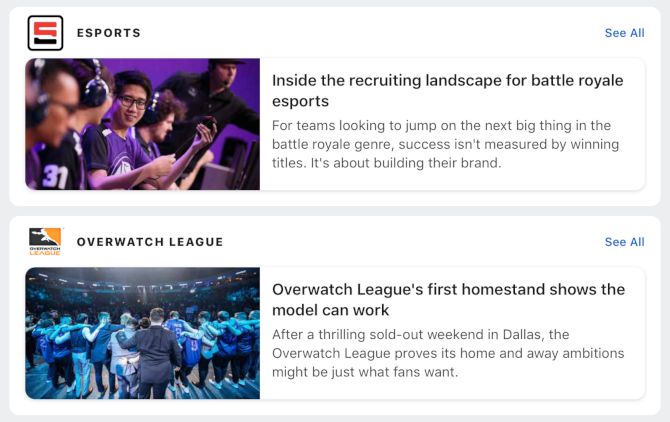
As of this writing, the front page of ESPN's Esports section has stories about League of Legends, Call of Duty, Counter-Strike, Overwatch, Valorant, and more.
For many esports fans, it was ESPN's embracing of esports that truly validated the concept. A mainstream media conglomerate genuinely reporting on games like Dota 2 and Super Smash Bros? This was the feast we've been waiting for since Quake and Street Fighter set the table way back in the 90s.
But for many others, esports remains an enigma—a joke, even. What is the deal with competitive gaming? Why is pro gaming even a thing? Why are esports so popular?
The Best VPN for Gamers
ExpressVPN isn't just the most reputable VPN, but it's also the #1 best gaming VPN for its speed, coverage, privacy, and protection. It's the only VPN we wholly recommend.
"You Watch People Play Video Games?"
If the topic of esports ever comes up among "outsiders," this is usually the first thing they ask.
I've had this conversation a handful of times with friends and acquaintances, and the sentiment is near ubiquitous:
"Why would you watch someone play a game? Why don't you just play the game yourself?"
And the underlying tone carries an accusation with it: "Don't you have anything better to do?"
It's an unfair question that—in my experience—stems from the outsider's prejudice against video games as a whole, which are seen as juvenile antics that distract from real life.
I watch people play video games for the same reason people watch The World Series of Poker: there's a vicarious joy that comes from watching top-tier players play the same game that I play, but on a completely different level.
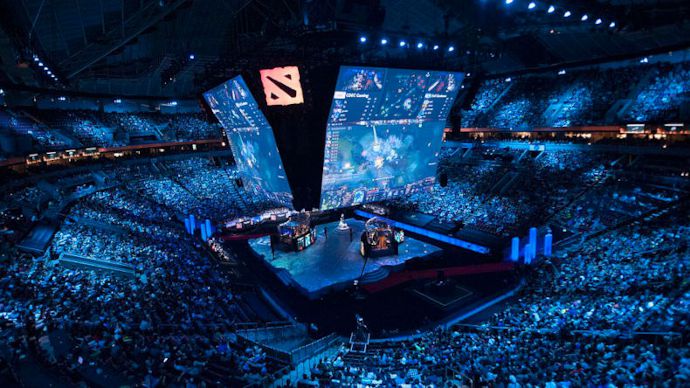
I'm not watching them play the game. I'm watching them play the game. I'm focusing on their decisions, how they react to situations, what they do that I don't do, and who comes out on top when top-caliber players collide head-to-head.
I even watch esports for games I don't play myself—and there are plenty of esports fans who don't game.
I've never played a proper game of StarCraft 2, but there was a time when I tuned in to watch GSL matches. The commentary was entertaining, the player storylines were interesting, and there was a lot of buzz around the game itself at the time.
None of this is atypical. Just look to South Korea's obsession with StarCraft: pro gaming stadiums draw crowds as large as 100,000 spectators, and a significant portion don't play the game.
It's so big that some StarCraft pro gamers even enjoy mainstream celebrity status among non-gamers.
How many fans of soccer actually play soccer? How many non-golfers watch golf? What percentage of the American Idol audience are singers? Is it really that unusual to watch a competitive event for something you don't participate in?
The Appeal of Competive Gaming, Explained
Anyone who argues "esports are not sports" is missing the point.
All competitive spectator events have the same appeal: an emotional investment in the outcome.
This is true whether we're talking about esports, sports, American Idol, MasterChef, chess, or Battle of the Bands.
Rivalries are one of the big drives behind competitive gaming narratives...
...like the one between Yo-hwan "BoxeR" Lim (who pioneered Terran strategies in StarCraft during the early 2000s when he was arguably the best player in the world)...
...and Jin-ho "YellOw" Hong (who consistently came in second place for every StarCraft tournament against BoxeR despite his exceptional Zerg-versus-Terran strategies).
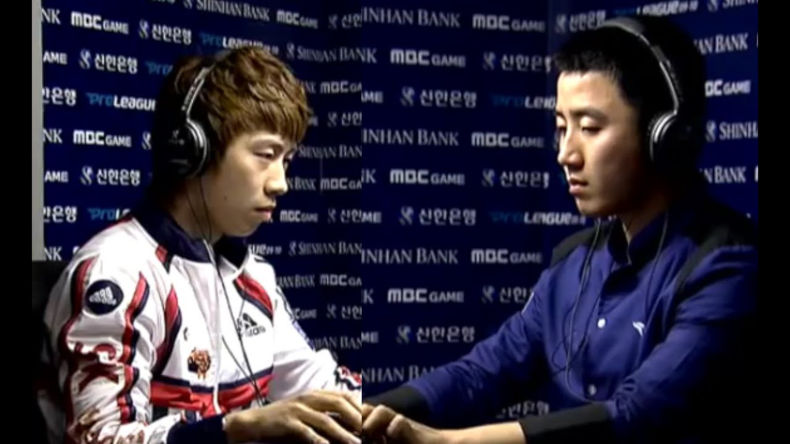
Knowing their history, you might feel something inside you rooting for one, the other, or both. You can tell that both players have something at stake—one needs to break his "always second" curse, the other needs to protect his legacy.
A decade ago, if you witnessed a match between these two players, you knew how much BoxeR had to lose, how much YellOw had to gain, and that's what gave their matches life.
Forget the prize money! Competition is about the players, what's at stake for them, what these events mean for them on a deeper, more personal level.
American Idol would have faded into obscurity long ago if they didn't play up the individual struggles of each contestant before they went on stage. Once you know why someone is up there, you can't help but root for them—or root against them.
And when you find yourself rooting for someone, their victories become your victories, their glory becomes your glory, their losses are your losses, and their disappointments become yours as well—and you love them all the more for it.
For esports and competitive gaming, the game is just the stage on which the competitors go at it. It doesn't change the heart of why we watch.
Online Streaming and Competitive Gamers
"We already have sports. Why don't you just watch those instead? Isn't there more on the line with sports? Aren't they more exciting to watch? Why would anyone prefer esports?"
Again, pitting esports against sports is missing the point. Plenty of folks, myself included, enjoy both. It's not about which one is more exciting, or more this, or more that.
Consider Bob Smith, who loves the Philadelphia Eagles and religiously watches every NFL playoffs game but doesn't give a squat about basketball, baseball, or soccer.
Just as we develop emotional connections with different players and different teams, we also connect with different games and different sports.
I find MMA interesting but doze off watching fighting games. Why? I have no idea. That's just how it is. Emotions are complex and don't always make sense.
But there are practical reasons to prefer esports.
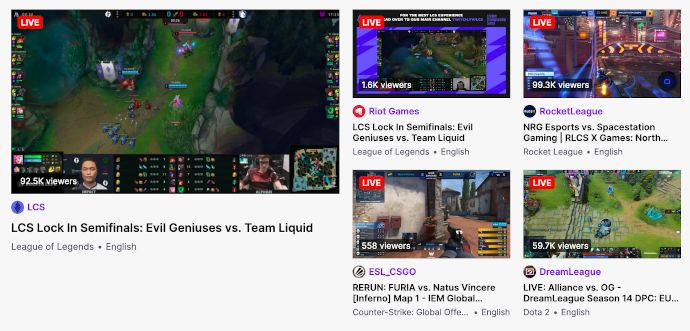
Viewers today have unprecedented access to top-tier gamers through streaming platforms like Twitch, which offer a level of interaction that just isn't found in the world of sports (even after social media is taken into account).
The opportunity to pick the brains of world-class players, or just shoot the breeze with them on a slow Saturday afternoon, helps deepen those emotional bonds.
Availability is another big one. With a few exceptions, all major esports events in the world are streamed online for free, meaning you can tune in no matter where you are in the world (sometimes with the help of a VPN).
While some sporting leagues, like the MLB, are catching up with streaming options, they ofetn come with a heavy cost. As of this writing, an MLB.TV package costs a whopping $60 for the season. UFC Fight Pass is $10 per month or $96 for the year.
To make matters worse, sports streaming plans often come with "blackout rules" that disable streaming for viewers who are geographically located in the television territory of the home team for certain games.
It's no wonder that esports have exploded over the last decade. Competitive gaming taps into the same human emotions in different ways. It's the same burger but in a different wrapper.
Esports and pro gaming appeal to our deep-seated need as humans to identify with—and live vicariously through—those with whom we've bonded.
Esports ain't going anywhere! And if your interest has been piqued, now's as good a time as any to dive in.
